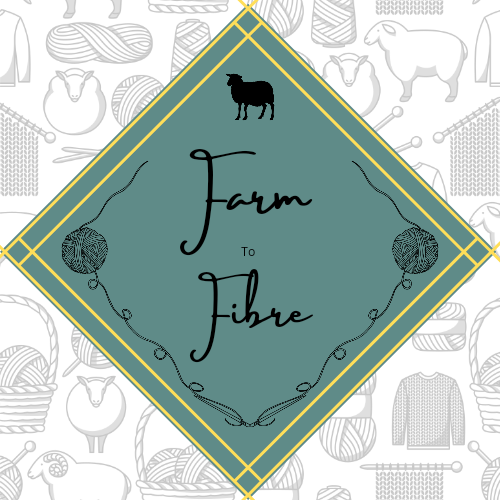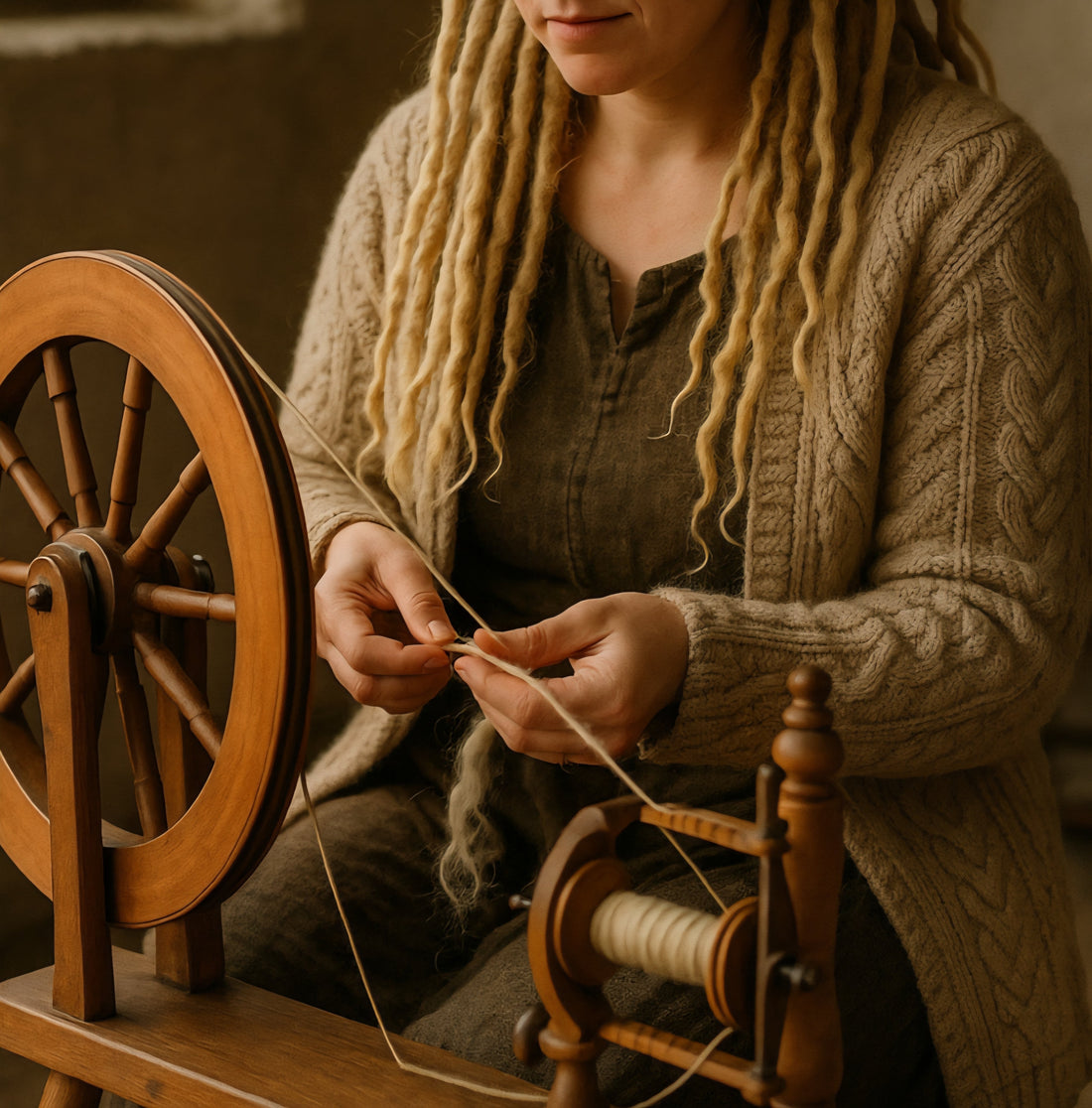🧶 How Much Should You Charge for Your Hand-Spun Yarn in the UK?
Are you spinning yarn to sell as a business, to supplement your income, or just thinking of turning your love of hand spinning into a side hustle?
If so, you’re probably wondering: How much should I charge for my hand-spun yarn?
Pricing your hand-spun yarn can feel tricky. Unlike mass-produced commercial yarns, your skeins are unique: they take time, skill, and high-quality fibre. A fair price should reflect these factors — and allow you to enjoy spinning without feeling like you’re working for free.
Here’s a practical way to price your yarn in the UK:
1️⃣ Calculate Fibre & Materials Cost
Start by adding up everything that goes into creating your skein:
✔ Wool, roving, or other fibres (include the full cost, even if you didn’t use the entire bag)
✔ Blending fibres (silk, alpaca, sparkle, etc.)
✔ Dyes if you hand-dye your fibre
✔ Skein ties, tags, and packaging materials (like labels, tissue, bags)
✔ Shipping supplies (envelopes, boxes, postage if you cover it)
💡 Tip: Keep a notebook or spreadsheet so you don’t lose track of these costs.
2️⃣ Calculate Your Labour Costs
Spinning yarn takes time — and your time has value. As a starting point, aim to pay yourself at least the UK National Living Wage, currently £12.21/hour (as of 2025). Charging more is perfectly reasonable if you have advanced skills, consistent quality, or offer custom spinning. Charging less is also perfectly fine if it is your hobby- (if you are going to be spinning for enjoyment anyway), you can reduce your hourly wage, but always include the cost of your materials and overheads.
To calculate your labour cost:
-
Track how many hours it takes you to spin, ply, set/twist, and finish your yarn (including washing and skeining).
-
Multiply the total hours by your hourly rate.
👉 Example:
Spinning & finishing a 200g skein takes 4 hours.
4 hours × £12.21/hour = £48.84 labour cost.
🧵 Note on Professional Pricing
Many professional spinners price yarn by yard or metre spun, not by time. This avoids incentives to spin slower and rewards experienced spinners who work quickly and consistently. Pricing by the yard also helps standardise prices across different weights (lace, fingering, bulky) and textures.
But when you’re starting out, hourly pricing is a great way to learn how long projects take and build confidence in valuing your time. You can always move to per-yard pricing as you gain speed and experience.
3️⃣ Don’t Forget Overhead Costs
If you’re selling online or at markets, you’ll need to cover:
✔ Listing fees (e.g., Etsy, Folksy)
✔ Payment processor fees (e.g., PayPal, Stripe)
✔ Craft fair table fees
✔ Website/domain costs if you sell independently
✔ Tools & equipment maintenance (wheels, spindles, niddy-noddies)
To put this into perspective- If you sell an item on Etsy . You pay the listing Fee (0.20 bi-annually) and then the processing fees which add up to around 18.5% of each item sold. If you use adverts then it cost even more in fees !
Divide these costs across your products or average them per skein to include in your pricing.
4️⃣ Determine Your Final Price
🔹 Wholesale Price Calculation:
Materials + Labour + Overhead = Wholesale Price
💰 Example Calculation
-
Fibre & materials: £8
-
Labour: £48.84 (4 hours × £12.21)
-
Overheads: £4
-
Wholesale price: £8 + £48.84 + £4 = £60.84
This might feel high compared to mass-produced yarns, but remember: you’re selling a unique, artisan skein. Customers who appreciate the craft will happily pay for your time, fibre, and skill.
*When you get a little more experience and become faster and more consistent, you can switch to the by yard/metre pricing. This will often lower the sale price of the products but will also give you incentive to go faster.
5️⃣ Research the Market
Before you finalize your prices:
✔ Look at what other spinners are charging for similar hand-spun yarns on Etsy or at fibre fairs.
✔ Compare based on weight, yardage, fibre blends, and finishing quality.
✔ Consider your brand’s uniqueness, dyeing, or specialty techniques.
Remember: your prices don’t have to compete with commercial yarns — your yarn is unique, small-batch, and crafted with care.
🎨 Final Thoughts: Value Your Work
Hand spinning is an art. It takes time, skill, and dedication — your pricing should reflect that. Undercharging can make spinning feel stressful instead of joyful.
So please:
✅ Start by paying yourself at least £12.21/hour.
✅ Add your materials and overheads.
✅ Research what others charge, then confidently set your price.
✅ Enjoy the process of sharing your hand-spun creations with people who appreciate them.
And when you get a little more experienced and consistent, you can change to how the professionals charge. (per yard/metre)
✨ Need Help Pricing a Specific Skein?
Drop a comment or send a message — I’m happy to help you work out your pricing.
And remember: the right customers will gladly pay a fair price for your beautiful, unique hand-spun yarn.

